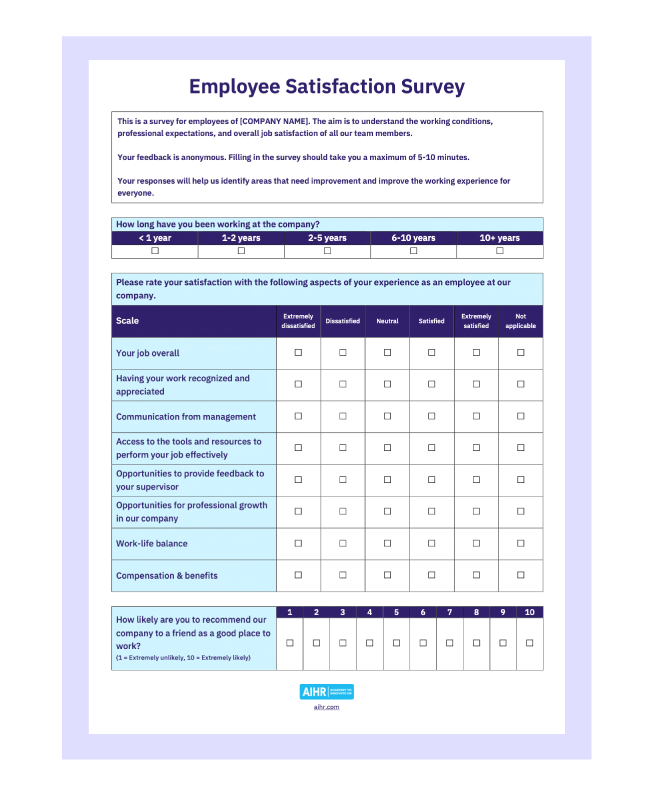The Undervalued Asset: How Middle Managers Drive Company Performance And Employee Satisfaction

Table of Contents
The Bridge Between Leadership and Employees
Middle managers are the linchpin connecting high-level strategic goals with the daily operations of a company. Their effectiveness directly influences the success of translating executive vision into tangible results.
Translating Strategy into Actionable Plans
Middle managers are responsible for interpreting high-level strategies and breaking them down into manageable tasks for their teams. This requires strong communication and planning skills, ensuring everyone understands their roles and how they contribute to the bigger picture. This process involves:
- Clearly defined goals and objectives: Setting SMART (Specific, Measurable, Achievable, Relevant, Time-bound) goals for teams ensures focus and accountability.
- Effective communication of company vision and goals: Clearly articulating the "why" behind strategic initiatives fosters buy-in and engagement from team members.
- Development of actionable plans and timelines: Creating detailed plans with realistic timelines helps teams stay on track and achieve their objectives efficiently.
Facilitating Two-Way Communication
Effective middle managers act as a vital communication channel, ensuring information flows smoothly in both directions – from leadership to employees and vice versa. This open communication fosters trust and transparency:
- Open-door policies and regular team meetings: Creating opportunities for open dialogue encourages feedback and addresses concerns promptly.
- Active listening and addressing employee concerns: Showing empathy and actively listening to employee concerns demonstrates respect and builds trust.
- Providing regular performance feedback and updates: Keeping employees informed about their performance and the company's progress fosters a sense of ownership and involvement.
Fostering a High-Performing Team
Middle managers are not just supervisors; they are team leaders, mentors, and motivators. Their ability to cultivate a high-performing team is a key driver of organizational success.
Talent Development and Mentorship
Investing in employee growth is crucial for retention and improved performance. Middle managers play a key role in this process:
- Identifying employee strengths and weaknesses: Regular performance reviews help identify areas for improvement and opportunities for growth.
- Providing training and development opportunities: Facilitating access to training programs and resources empowers employees to enhance their skills.
- Offering mentorship and guidance to junior team members: Mentoring fosters a supportive environment, promoting employee loyalty and developing future leaders.
Driving Team Collaboration and Productivity
Creating a positive and collaborative work environment is essential for maximizing team productivity. Effective middle managers:
- Implementing effective team-building activities: Team-building exercises foster stronger relationships and improve collaboration.
- Encouraging open communication and knowledge sharing: Facilitating open communication and knowledge sharing promotes innovation and efficiency.
- Promoting a positive and supportive work environment: A positive work environment boosts morale, reduces stress, and improves overall productivity.
Managing Performance and Addressing Conflict
Managing performance and resolving conflicts are crucial aspects of middle management. Effective managers:
- Regular performance reviews and feedback sessions: Regular feedback helps employees understand their performance and areas for improvement.
- Conflict resolution strategies and mediation: Addressing conflicts fairly and efficiently prevents escalation and maintains a positive work environment.
- Fair and consistent application of company policies: Ensuring fairness and consistency in applying company policies promotes trust and respect.
The Impact on Employee Satisfaction and Retention
The impact of effective middle management extends far beyond immediate team performance; it directly influences employee satisfaction and retention.
Creating a Positive Work Environment
Middle managers significantly influence the overall employee experience. A positive and supportive work environment leads to higher job satisfaction and retention:
- Recognition and appreciation of employee contributions: Acknowledging and rewarding employee contributions fosters a sense of value and belonging.
- Work-life balance initiatives and flexible work arrangements: Supporting work-life balance improves employee well-being and reduces stress.
- Opportunities for growth and advancement: Providing opportunities for growth and advancement motivates employees and increases their commitment to the company.
Reducing Employee Turnover
Investing in middle management training and support directly impacts employee retention, reducing costly turnover:
- Improved employee engagement leads to higher retention rates: Engaged employees are more likely to stay with the company long-term.
- Reduced recruitment and training costs: Lower turnover reduces the expenses associated with recruiting and training new employees.
- Maintaining institutional knowledge and expertise: Retention of experienced employees preserves valuable institutional knowledge and expertise.
Conclusion
Investing in your middle managers is not just a worthwhile endeavor; it’s a critical strategy for achieving long-term organizational success. By empowering them with the necessary skills, resources, and support, you unlock their potential to drive both company performance and employee satisfaction. Don't undervalue this crucial asset; nurture your middle managers and watch your company thrive. Start optimizing your middle management strategies today and experience the positive impact on your overall company performance and employee satisfaction. Effective middle management is the key to unlocking higher levels of employee engagement and overall business success.

Featured Posts
-
 Rihannas New Savage X Fenty Bridal Collection Unveiling Heavenly Designs
May 06, 2025
Rihannas New Savage X Fenty Bridal Collection Unveiling Heavenly Designs
May 06, 2025 -
 Rihannas Giorgio Baldi Visit Marks Restaurants Post Wildfire Return
May 06, 2025
Rihannas Giorgio Baldi Visit Marks Restaurants Post Wildfire Return
May 06, 2025 -
 Where To Buy Nikes Jordan Chiles And Sha Carri Richardson Collaboration Shirts
May 06, 2025
Where To Buy Nikes Jordan Chiles And Sha Carri Richardson Collaboration Shirts
May 06, 2025 -
 Rumer Williss Cryptic Ashton Kutcher Remark Causes Stir
May 06, 2025
Rumer Williss Cryptic Ashton Kutcher Remark Causes Stir
May 06, 2025 -
 Post Election Australian Assets Analyst Predictions And Market Outlook
May 06, 2025
Post Election Australian Assets Analyst Predictions And Market Outlook
May 06, 2025
